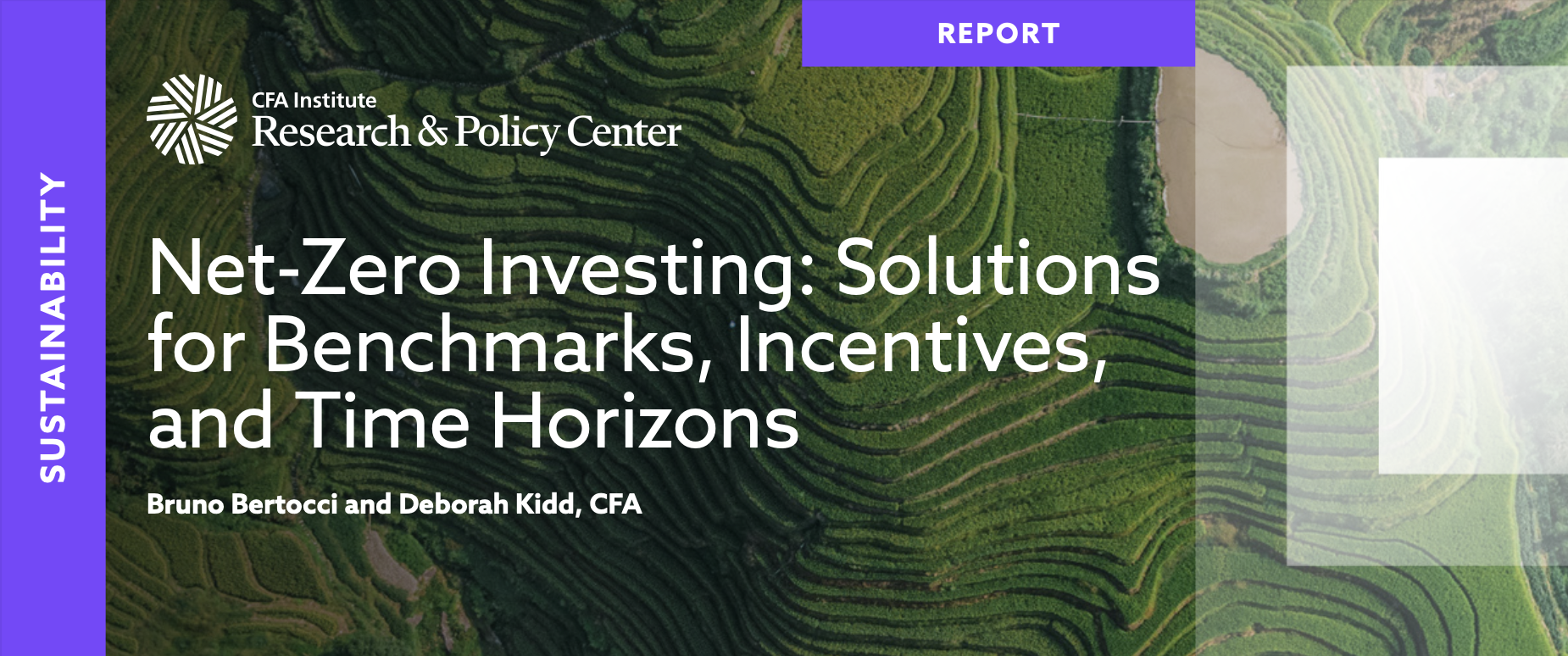Bruno Bertocci and Deborah Kidd, CFA

Photo credit: CFA Institute
London, 12 November 2024 – As investors worldwide intensify their efforts to mitigate climate change, CFA Institute, the global association of investment professionals, has released a new report addressing key solutions for achieving net-zero investment objectives. Net-Zero Investing: Solutions for Benchmarks, Incentives, and Time Horizons explores the challenges asset owners and managers face in integrating climate risk into their portfolios while balancing financial returns.
The report underscores the growing importance of adopting a holistic investment approach that incorporates net-zero targets alongside traditional risk and return metrics. By applying a systems-thinking framework, CFA Institute highlights how climate objectives, risk management, and financial goals should be integrated to effectively manage portfolios in a transitioning economy.
Chris Fidler, Head of Global Industry Standards at CFA Institute, commented:
"As the global push for net-zero carbon emissions accelerates, investors must look to adapt their strategies to meet both climate and financial objectives. Our research shows that managing these transitions requires more than just setting long-term climate targets. It involves integrating net-zero benchmarks, aligning incentives, and adopting suitable time horizons for meaningful progress. Without these changes, asset owners risk missing out on opportunities while failing to mitigate long-term systemic risks."
Key Challenges and Solutions Highlighted in the Report include:
Balancing Climate and Financial Objectives: The report emphasises that a successful net-zero program should enhance, not compromise, traditional financial objectives. Asset owners need to consider how portfolio decarbonisation and investments in climate solutions can mitigate climate risk while delivering strong financial performance.
The Role of Benchmarks in Measuring Success: Investors require appropriate benchmarks to track both financial returns and net-zero progress. The report suggests using a "scorecard" approach, which combines financial performance metrics with climate-specific measures like emissions reductions. This dual-track measurement ensures investors can holistically evaluate portfolio performance against all objectives.
Incentivising Climate Action: CFA Institute highlights the need for incentives that motivate asset managers to engage in portfolio decarbonisation and invest in climate solutions. These incentives must align short-, medium-, and long-term goals to support gradual progress towards a 2050 net-zero target.
Adopting Longer Time Horizons: Most investment programs operate on three- to five-year performance cycles, but net-zero objectives require longer time horizons to see meaningful results. The report calls for investors to adopt a minimum five-year performance evaluation period to better capture the impact of climate investments and engagement efforts.
The report also addresses the evolving landscape of climate risk management. As traditional risk management tools struggle to adequately capture climate-related risks, CFA Institute recommends that asset owners use both backward-looking emissions data and forward-looking metrics to manage climate exposures.
“It is critical for investors to adopt a forward-looking mindset,” added Fidler. “By assessing future risks and transition opportunities, asset owners can better position their portfolios to benefit from the global shift toward a low-carbon economy.
"Achieving the long-term goal of net-zero by 2050 requires meeting interim targets across short- and medium-term horizons. Climate change has the potential to materially and unexpectedly impact portfolio assets both now and, in the future as the world works to mitigate this systemic risk. Evaluating the success of a net-zero investment strategy must account for this, as it differs significantly from the typical three- to five-year performance cycles used by many investors."

